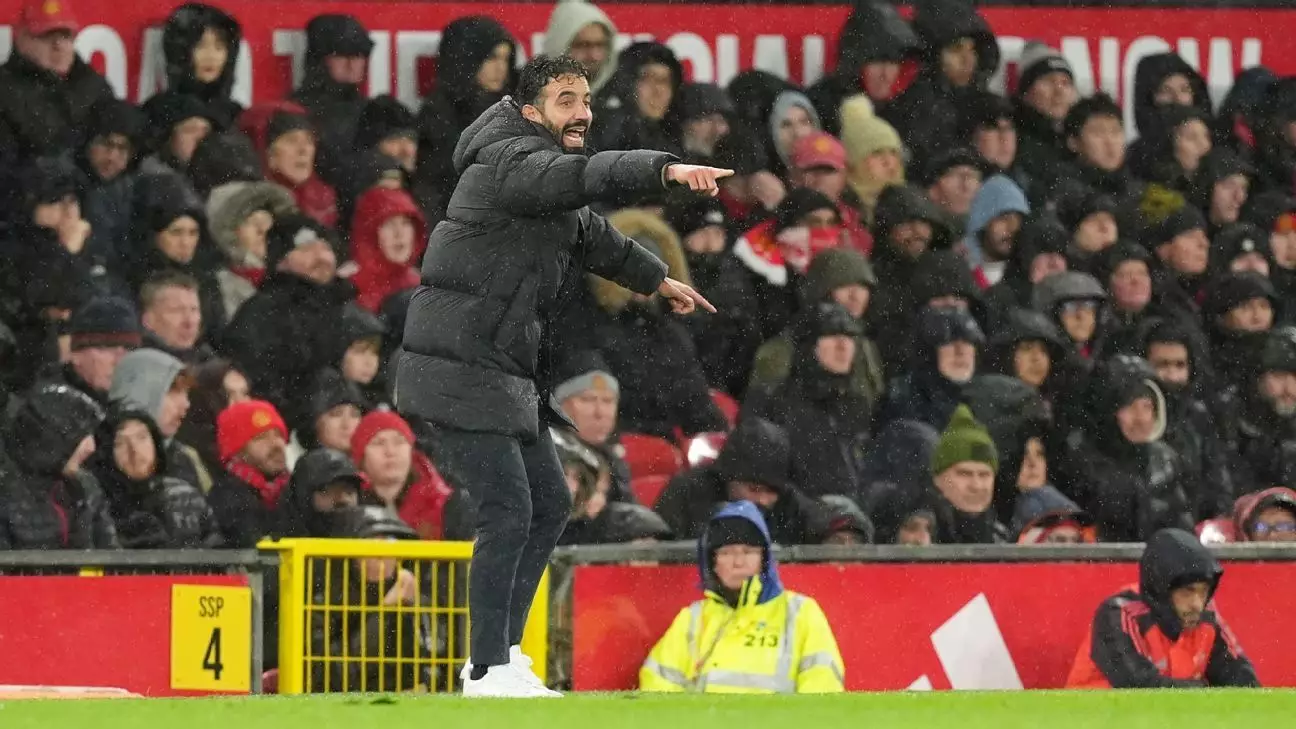Manchester United finds itself at a perplexing crossroads, marked by disarray both on and off the pitch. Following a disheartening 3-2 defeat to Nottingham Forest—an outcome that witnessed Forest achieving their first win at Old Trafford in three decades—the team has slipped to a concerning 13th place in the league. With a mere 19 points after fifteen matches, this marks United’s lowest tally at this stage since the 1986-87 season, a grim statistic that emphasizes the depth of their current struggles.
The defeat against Forest brought to light not just the scoreline but a series of glaring deficiencies within the team. Ruben Amorim, the current manager, acknowledged the monumental challenge ahead, describing it as a “long journey” back to the top. The psychological weight of losing at home, especially in such a significant match, reverberated through the stadium, leaving fans and players alike grappling with disappointment.
The match itself illustrated the alarming defensive frailties plaguing United. The opening goal came alarmingly early, just 90 seconds in, due to a powerful header from Nikola Milenković. The goal was a direct result of Lisandro Martínez’s failure to contest a corner, showcasing a lapse in concentration that would become a hallmark of the game. United’s second goal conceded was born from a catastrophic series of errors. Bruno Fernandes’ misplaced pass and a glaring mistake from goalkeeper André Onana allowed Morgan Gibbs-White to double the lead for Forest. The third goal, scored by Chris Wood, was another example of defensive disorganization, as Onana, Martínez, and Matthijs de Ligt collectively contributed to a moment of chaos in their own area.
These defensive missteps are symptomatic of a deeper-rooted issue within the infrastructure of the team. Amorim’s comparison to his experiences at Sporting CP is telling; he recognizes that such periods of adversity can beset any team, regardless of its stature. However, the glaring difference lies in United’s heightened global visibility and expectations, which compound the pressure on the players and management.
Despite the torrent of criticism that often follows such losses, Amorim remains resolute. His emphasis on maintaining focus and performance rather than being overwhelmed by the setbacks speaks volumes. He reiterated the importance of training and improvement, suggesting that the path forward involves meticulous attention to detail and commitment. Each session becomes a building block toward eventual redemption.
As the club looks ahead, it is evident that they cannot afford to let their current form define the season. The focus must shift from dwelling on past failures to laying the foundation for a brighter future, starting with the next training session. Players must rally to support one another, finding ways to learn from their mistakes while enhancing their cohesion as a unit.
While Manchester United faces a daunting challenge, the journey to recovery is not insurmountable. The ability to learn from adversity and maintain a focus on long-term improvement could very well dictate the trajectory of the season. With determination and the right adjustments, the storied club could rise from its current struggles and reclaim its place among the elite of English football.

Leave a Reply